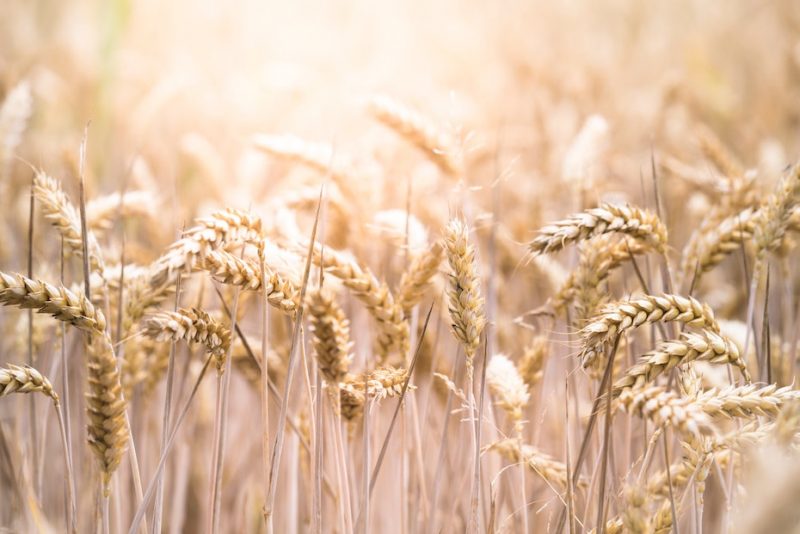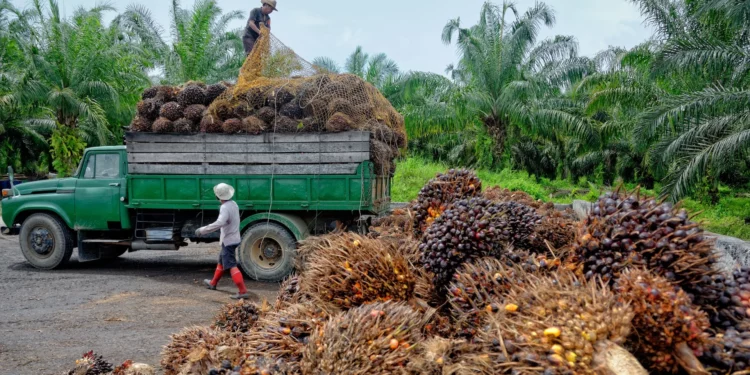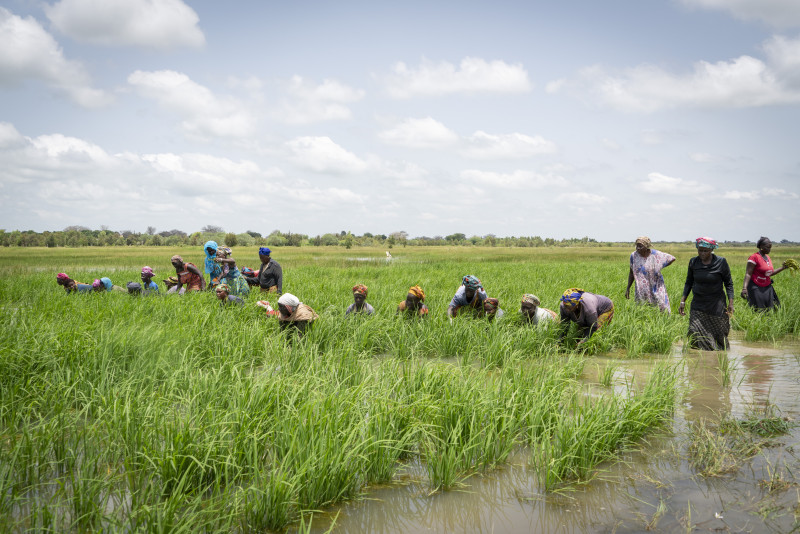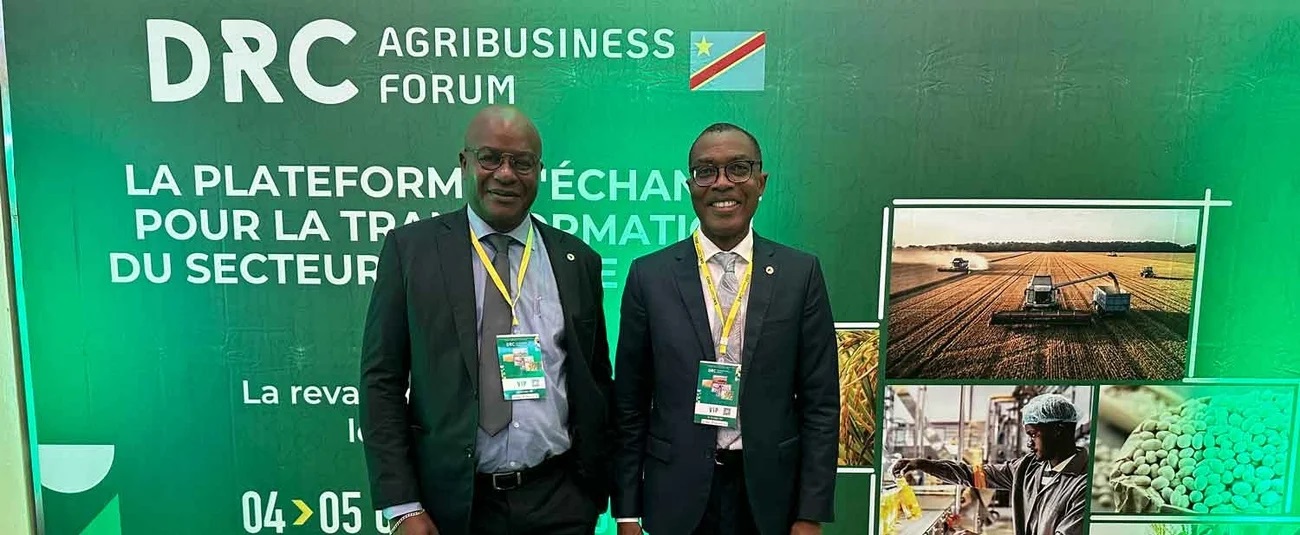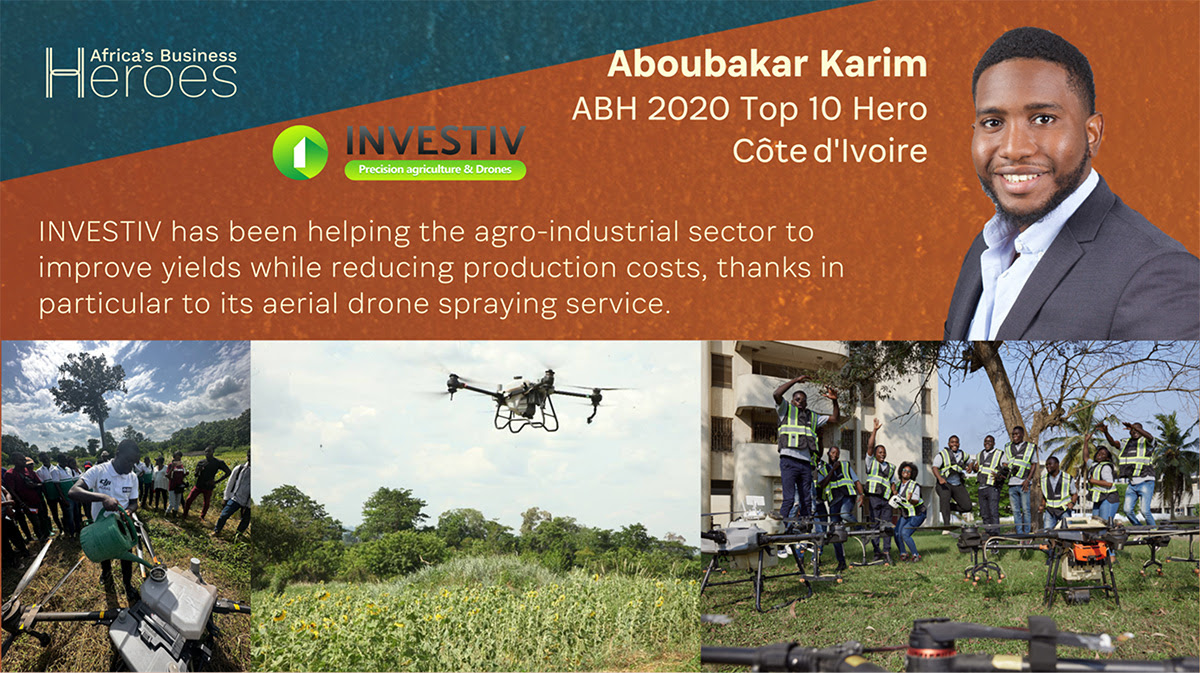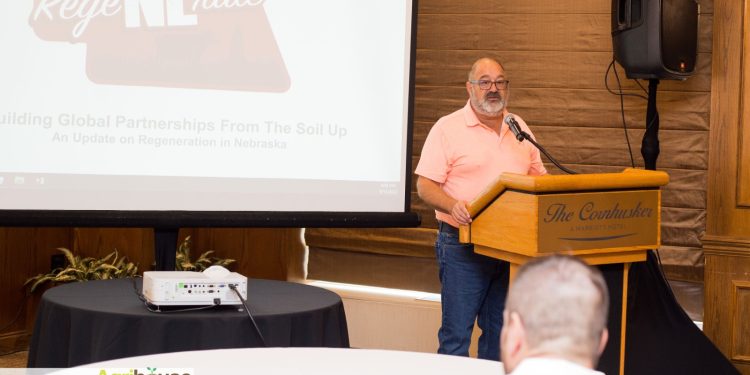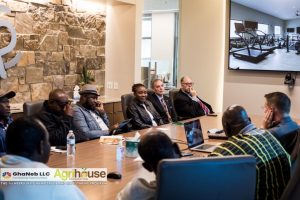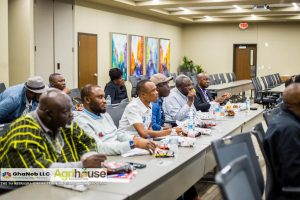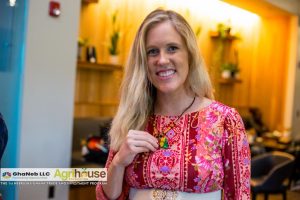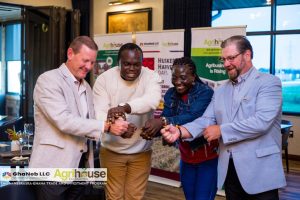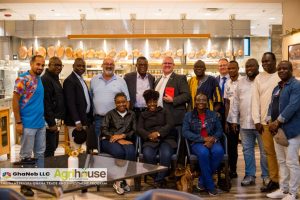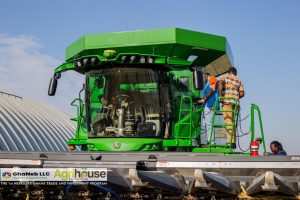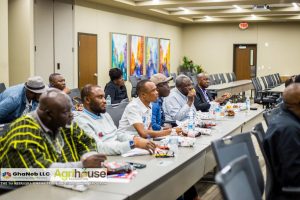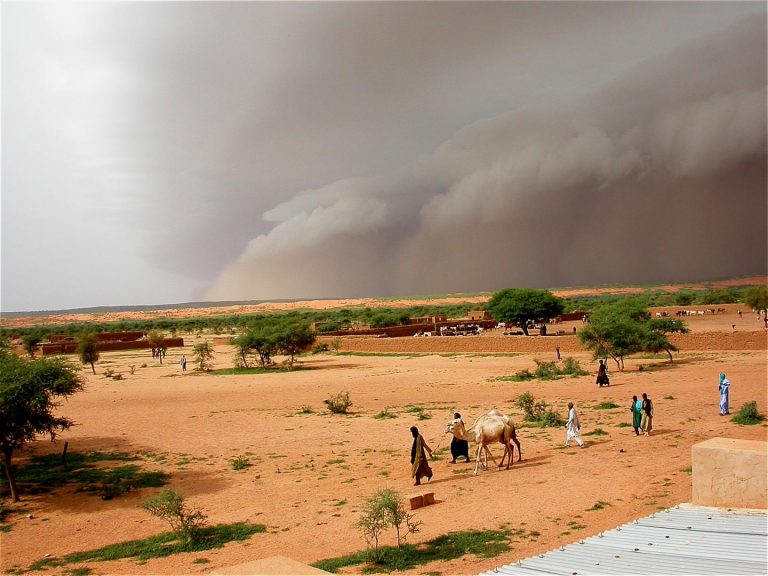The Nebraska-Ghana Trade and Investment Program and Husker Harvest Days event, which saw the participation of twenty-two (22) Ghana Government officials and Private Businesses, has ended successfully in Lincoln, Nebraska.
The event, held from 11th to 14th September 2023, UNDER THE THEME – FACILITATING OPPORTUNITIES, has been described by participants as one of the most well-organized Trade and Investment Programs, which is poised to make significant impact, in establishing and building relevant and much needed partnerships.
Senator Ken Schilz, the Lead and Co-founder of Nebraska GhaNeb LLC, expressed his satisfaction, with the quality of the Ghanaian delegates, their understanding of the sectors, in which they operate, and most importantly, their desire to establish long term and profitable business partnerships.
Both GhaNeb LLC and Agrihouse Foundation have positioned ourselves to support to facilitate the opportunities and relationships, that have been established.
We are confident, that creating this platform will help businesses expand their operations and contribute to economic development of both Nebraska and Ghana. Senator Schilz added.
Speaking to some participants, Cecil Sunkwa-Mills of T & C Farms, said, what stood out for the me, was the Business Presentations, where they learnt from the various Nebraska State legal practitioners, policy makers and farmers on focused issues, that addressed, the Legalities of Doing Business in Nebraska, Regenerative Agriculture, Digital Marketing for Retail Sales and Data Mining.
Dr. Solomon Gyan Ansah, the Director of Crop Services at the Ministry of Food and Agriculture, expressed his deep admiration for the extensive array of machinery and equipment utilized by farmers in Nebraska. He noted that these advanced tools have significantly contributed to enhancing crop productivity in the region.
The Chairman of the Ghana Federation of Livestock Inter-Professionals (GHAFLIP), Alhaji Akakade Moro, also shared similar sentiments about the event. Describing it as not only insightful but also an eye-opener to the agricultural sector in Ghana.
The delegates, who also met with leaders of Kreikemeier Farms, Lincoln Premium Poultry, RWH Energy, EZ Politix, Sandhills Global and Certified Piedmontese, expressed their satisfaction with the detailed business discussions, they had.
‘’We have together identified areas of Trade collaborations. There are meaningful technologies and enhanced equipment, that we will need. Talks and negotiations have already begun, and we are hopeful to seal some deals soon’’. Mashud Mohammed, Ghana’s 2021 National Best Farmer added.
A pivotal highlight of the program for the Ghanaian delegates, was the visit the Husker Harvest Days event grounds, the renowned and illustrious showcase, acclaimed as the largest irrigated agriculture exposition in the United States.
All the delegates spoke about the positive interactions they had with Exhibitors and vendors, their appreciation of cutting-edge technologies. They are positive of future collaborations.
The delegates also had the opportunity to meet with Southeast Community College and Nebraska State University, who are looking at having Ghanaian students, enrol in their institutions in the immediate future.
Alberta Nana Akyaa Akosa, the Executive Director of Agrihouse Foundation, enthusiastically expressed her excitement about the impactful and meaningful partnership, Agrihouse Foundation, has established with GhaNeb LLC, which has made the organizing of the 1st Nebraska-Ghana Trade and Investment Program possible.
I am excited about the future and the important role, we are playing with GheNeb LLC, in facilitating these relationships established. I am happy we have showcased our potential to support in driving innovation and growth in the agricultural sector, creating new avenues for both regions to prosper, she added.
“The partnerships formed during this program are not just agreements on paper; they represent the fusion of expertise, resources, and visions from two different regions. These collaborations will drive innovation, promote sustainable practices, and ultimately contribute to the growth of our agricultural sectors. It’s incredibly exciting to witness the potential these partnerships hold for both Ghana and Nebraska,” stated Mad. Alberta.
This symbolizes the collective commitment of both GhaNeb LLC, Agrihouse Foundation, and the participating regions to work hand in hand in augmenting the agriculture value chain.
The Ghanaian delegation who participated in the 1st Nebraska-Ghana Trade and Investment Program and experienced the Husker Harvest Days included; Hon. Yaw Frimpong-Addo, Deputy Minister of Food and Agriculture (Crops), Mr. Fifi Fiavi Kwetey, General Secretary of the National Democratic Congress, representing former President John Dramani Mahama.
The rest were, Dr. Ansah Solomon Gyan, Director of Crop Services at the Ministry of Food and Agriculture, and Michael Kofi Akoto, Trade Promotion and Commercial Officer at the Embassy of Brazil, Mr. Mohammed Mashud, Chief Executive Director of Cudjoe Abimash Farms, Nana Osuman Abdulai, Managing Director of A.N.O Enterprise/Nana Atta Akara Co. Ltd, Al-Ayadi Fares Mohammed Khear, Irrigation Service Manager at Interplast and Alhaji Akakade Moro, Chairman of the Ghana Federation of Livestock Inter-Professionals (GHAFLIP).
Others included, Mashud Mohammed, Operation Manager at Agripower, Dorothy Opoku, General Manager of Agricultural Manufacturing Group Limited, Kwabena Danquah, General Manager of Operations at Agricultural Manufacturing Group, Seidu Abubakar, Project Specialist for Commercial Agriculture at Savannah Zone Agricultural Productivity Development Project (SAPIP), and Sunkwa-Mills of T&C Farms.
Fidelity Bank’s Head of Agribusiness, Patrick Opoku, and Real Estate Investors Monica and Collins Atta Oteng, of Collinmon Investment Limited, were also present.
SOURCE
AGRIHOUSE FOUNDATION
